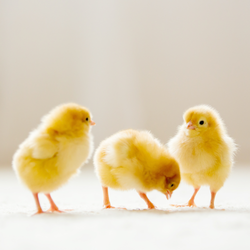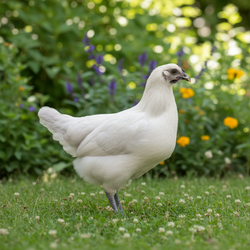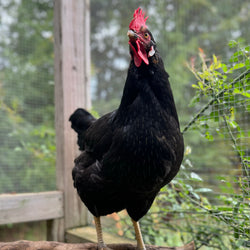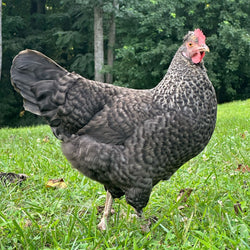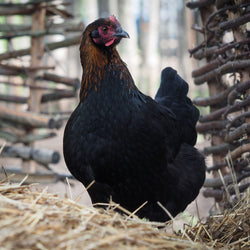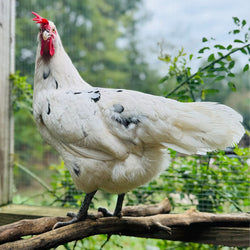f=menu/--
Frequently Asked Questions
Here we answer the most commonly-asked questions about ordering, chicken care, and more.
What is the life expectancy of ducks and geese?
If cared for properly, ducks can live to 7-10 years, and some exceptional birds may live longer than that. Geese normally live 10-15 years, but there are stories of some that have lived much, much longer--40 years or more! Around 3-5 years, duck fertility and egg production lessen, and many keepers choose not to keep older birds because of this. But there are many reasons to keep ducks into their older age. We discuss some of them here. Other reasons to keep older birds can be found in this creative My Pet Chicken blog article (it refers to chickens but...
Read MoreThere are hawks or owls in our area. Will our chickens be safe?
Hawks and owls can most certainly be a danger to chickens (heck, even CROWS can be a danger to juveniles or bantams). However, only a few types usually bother chickens. The raptors most often associated with flock losses are red-tailed hawks, goshawks, and great horned owls. Having a rooster can help alert the girls to a predator in time for them to run for cover. Some people choose to keep a run covered with netting so flying predators are not a problem. Generally speaking, hawks are mostly a problem in the spring and in the fall when they are migrating...
Read MoreShould I free range my chickens?|
If you allow your chickens to range freely, you WILL lose some to predators-- make no mistake. It can be devastating, especially to those of us with small, well-loved flocks. For some people, the thought of a loss is too overwhelming to consider the alternative. However, if you keep your chickens confined, even if the run area is roomy (defined as 20+ square feet per bird), their lives will absolutely be more... boring. They'll be more likely to peck one another, a headache for you (and worse for them!), and less healthy overall. They'll also require more of the feed...
Read MoreDo possums eat chickens?
Yes--A possum (a.k.a. "opossum") that gets into your coop or run can eat eggs and young chicks, but they have certainly been known to kill adult chickens as well. Small bantams are especially at risk. When they kill adult chickens, they will take one or more and leave remains quite similar to what a raccoon leaves: the body or bodies will usually be left where they were killed, rather than carried away. The birds will usually be killed by bites to the neck, and the opossums often just eat the contents of your birds' crops and occasionally some of the...
Read MoreWhat do I need to know about wolves and coyotes if I keep chickens?
Name: Wolf, Coyote Canis lupus, Canis latrans Description: Wolves and coyotes are both members of the dog family, and appear as large (scary!) dogs with silvery or brownish fur. Wolves can be up to 5 feet long (excluding tails), and nearly three feet tall at the shoulder. They can weigh up to 175 pounds, but average around 80. Coyotes can be up to about 3 feet long (excluding the tail), and about 2 feet tall at the shoulder. They can weigh up to 75 pounds, but average around 50. Distribution/Habitat: Coyotes are found in North America. Various species of wolves...
Read MoreWill my dog attack chickens?
Domestic dogs--including those belonging to you as well as those belonging to other people--are the most common predators of chickens in both suburban and rural areas. Most dogs are not trying to kill your birds. They simply want to chase, but even chasing can be fatal, because chickens often break their necks trying to get away, or die of heart attacks if they have no where safe to escape. In cases where your chickens are neither hurt nor killed by a dog attack, they can still be thrown off laying for days or even several weeks due to the upset....
Read MoreWhat do I need to know about raccoons if I keep chickens?
If you keep chickens, raccoons are one of the biggest threats to your flock. With their nimble paws and puzzle-solving smarts, these nighttime raiders can tear through weak coop defenses in search of an easy meal. But don’t worry—you can outsmart them. Learn how to secure your setup and protect your birds with a few simple, proven tactics.
Read MoreWhat do I need to know about snakes if I keep chickens?
Name: Snakes Serpentes spp (nearly 3000 species) Description: *Legless reptiles of many colors *Snakes range in size from just a few inches/a few ounces to those that are more than 25 feet long and more than 200 pounds Distribution/Habitat: Various species are found throughout the world Hunting Behavior: Most snakes too small to be predators of adult chickens. Instead, they tend to be predators of eggs and young chicks. (The largest snakes are inhabitants of rain forests, and we suspect that very few backyard chicken keepers will live in the Indian or South American jungles.) Very small snakes won't even...
Read More







"The Clubhouse" Coop
Easy to assemble and built to last, the Clubhouse Coop is the perfect starter coop for a small flock.

